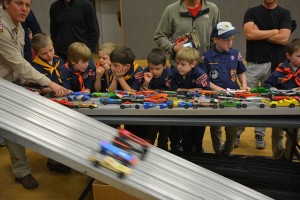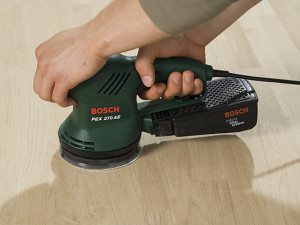Neither a borrower nor a lender be,
For loan oft loses both itself and friend,
And borrowing dulls the edge of husbandry.
— Shakespeare, Hamlet Act 1, Scene 3
My Dad put it another way, “Don’t borrow anything you can’t afford to replace.”
I was looking at my kitchen this afternoon thinking that eventually it’s going to need a coat of paint. When I was younger, I loved to paint; it was therapeutic for me. If I needed to think about something else besides housework and kid stuff, I’d grab a can of paint and find somewhere to put it. Somewhere in my articles here, I talked about how when my Dad died I used painting to get through my grief. I’ll  be 61 in two months, and somehow painting doesn’t quite have the appeal it did in days gone by.
be 61 in two months, and somehow painting doesn’t quite have the appeal it did in days gone by.
I digress. As I was looking at my kitchen today, I remembered the last time I painted it. After many years and many coats of paint, I decided the cupboards needed to be stripped because they wouldn’t even close anymore. It took me all winter, but I stripped all the paint and got them ready to sand.
The boy scouts were having a fundraising breakfast at the church one Saturday morning, and we happened to sit at the same table as our beloved stake patriarch. We were talking about my kitchen project, and I was telling him that I wasn’t looking forward to sanding all those cupboards by hand. He doesn’t live far from the church, so he made me follow him home, but I didn’t know why. I waited in the garage while he found his electric sander and handed it to me. The conversation went something like this:
“Oh, no, Brother Judd, I can’t borrow your sander.”
“Yes, you can. Take it.”
“Brother Judd, I don’t want anything to happen to it.”
“I know you’ll take care of it. Take it.”
“You don’t understand. My Dad always told me not to borrow things.”
“Take it.”
 Let’s just say that you don’t win an argument with Brother Judd. I was so very careful with the sander. About three cupboard doors into the project I heard a pop, and then the sander died. Without even investigating, I was sick to my stomach. I had broken Brother Judd’s sander. I spent one whole day calling around to find someone who could possibly fix the sander. Everyone told me the same thing. The model was too old, and they could not even get replacement parts. The next day, I went out and bought Brother Judd a new sander.
Let’s just say that you don’t win an argument with Brother Judd. I was so very careful with the sander. About three cupboard doors into the project I heard a pop, and then the sander died. Without even investigating, I was sick to my stomach. I had broken Brother Judd’s sander. I spent one whole day calling around to find someone who could possibly fix the sander. Everyone told me the same thing. The model was too old, and they could not even get replacement parts. The next day, I went out and bought Brother Judd a new sander.
I used the sander to finish up the project, and then I cleaned it up, put it back in the box, and went to see Brother Judd to confess my crime. That conversation went something like this:
“Brother Judd, I’m returning a sander, but it is not the sander you loaned me. I tried to be careful, but I broke your sander, so I bought a new one to replace it.”
“You keep it.”
“Oh, no, Brother Judd, I couldn’t do that. I borrowed your sander, broke it, and now I must replace it for you.”
“It was old. You keep it.”
“No, I don’t feel right about this, Brother Judd. I need to make things right.”
“You have. You bought me a new sander. Now take it home.”
“No, Brother Judd, then it would be my sander; not yours. I can’t do that.”
“I’m old. I’ll not be needing it.”
“It doesn’t matter. I need to replace it. It’s not mine.”
 Brother Judd took the sander from me and handed it to my teenage daughter.
Brother Judd took the sander from me and handed it to my teenage daughter.
“Kaylonnie, your mother has replaced my sander, and given it back to me. I am making it a gift to you. There is a stipulation to this gift. You must always let your mother borrow it whenever she needs it.”
As I said, it is not possible to win an argument with Brother Judd.
My Dad loved to tell stories, and when he would finish a story, he would say, “And the moral of the story is . . . .” At which point his children were expected to fill in the blank.
So, the moral of this story is fourfold.
First, don’t borrow.
Second, if you do borrow, don’t borrow from a kind albeit stubborn old man.
Third, always remember that integrity is imperative to any relationship.
Fourth, kindness and forgiveness is a remarkable gift.
Each time I look at the paint in my kitchen, I am reminded of my kind friend, Brother Judd. My daughter and I shared something with Brother Judd that day that we will always remember. The lesson of honesty and integrity that I thought my daughter was going to learn that day—while important—was dwarfed in comparison to the lesson about kindness and forgiveness from our beloved friend. I suspect that many years will go by, and my daughter will remember Brother Judd and the sander when she least expects it. I believe she will want to extend kindness to someone in a similar manner.
Shakespeare doesn’t always have to be right. In this case, because the lender is a remarkable, loving man, friendship was not lost. Instead, our friendship was further cemented. While I have no intention of ever borrowing anything again, I’m glad I did just that one time. Valuable lessons were learned all around.
About Tudie Rose
Tudie Rose is a mother of four and grandmother of ten in Sacramento, California. You can find her on Twitter as @TudieRose. She blogs as Tudie Rose at http://potrackrose.wordpress.com. She has written articles for Familius. You will find a Tudie Rose essay in Lessons from My Parents, Michele Robbins, Familius 2013, at http://www.familius.com/lessons-from-my-parents.
Twitter •







